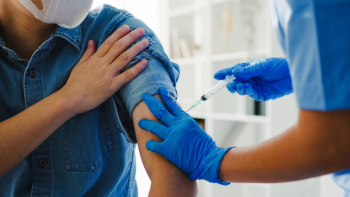
Emergency Disaster Response: Three Ways Pharmas Can Help
As vital contributors to hospital disaster preparedness, the pharma industry has a role to play in making sure medical networks have what they need to meet the unforeseen, including future disasters.
From Paris, to Colorado Springs, to San Bernardino, recent mass casualty events have forced us to examine the new normal worldwide: that hospitals will likely be activing their emergency response plans far more often than in the past.
While preparation is of utmost importance, it is clearly hard to prepare for horrific events like those of recent days. Doctors and nurses interviewed following the events related individual actions that typify the professionalism with which medical teams respond-setting aside the emotionalism to simply triage and ensure care for all. Provider networks train intensely for such events, as well they should. Their communities must rely on their confidence in facing an unknown devastation whose size, scope, and impact cannot fully be anticipated.
Yet when disasters strike elsewhere, healthcare professionals instinctively wonder “how would I handle this if it happened at my hospital?”
As it turns out, many of them are not confident in the answer, and point to specific areas of operational readiness that they perceive as potentially lacking. Their concerns frame important considerations for the pharma industry as we work to support the broad needs of the healthcare system as a whole, both acute and ongoing.
New data shows lack of confidence
In an instant snapshot of critical care staff option taken on November 24, 2015- several days after the Paris terrorist events-fully two-thirds of ER and critical care clinicians in the United States said they didn’t feel their hospitals were prepared to handle the victims of the next terrorist attack or other mass casualty event. The microsurvey, compiled by
Notably, only 32% strongly agreed or agreed that their hospital had adequate staff to mobilize in a similar situation to the attacks that occurred in Paris in November. Similarly only 41% strongly agreed or agreed their hospital was ready to respond to the victims of a similar terrorist attacks. Available beds (only 26% believed they were sufficient) and adequate blood supply (only 32%) were the top concerns.
Surgeon availability is paramount during disasters, yet only half of the respondents felt their facility would have enough surgeons on hand during a mass casualty event. Doctors in particular were concerned about surgeon availability, with only 33% of them in the survey agreeing or strongly agreeing that their hospital had adequate surgical availability for such an event, compared to 56% of nurses agreeing or strongly agreeing. Additional triage staff and additional staff training top the ranks as the most needed elements for hospital readiness, at 30% and 31% respectively. But still, many polled were undecided about the readiness of resources and needs.
What’s more, 42% of nurses felt that patients who are taken into the ER recently were exhibiting higher anxiety as a result of recent Paris terrorist attacks. Yet only 35% strongly agreed or agreed that their facility would have enough mental health staff available during a terrorist event-a concern given the impact of such events, particularly on at-risk groups.
Pharma’s role and readiness
As vital contributors to hospital disaster preparedness, the pharma industry has a role to play in making sure medical networks have what they need to meet the unforeseen, including future disasters. The survey results call upon pharmas to monitor the sentiment, impact, and options for assisting this important community. Here are three ways the industry can do its part to facilitate readiness.
- Know your constituency. Be aware of perceptions of the ER community and their thoughts on weak points, with an eye to where the pharma’s offerings intersect. Assessing clinicians for feedback on key issues in the moment is an important way to stay current, flexible, and prepared. Clinicians are on the front line of delivering care. Their voice needs to help drive the conversation about being prepared for catastrophic events. Having access to a crowd of clinicians is critical as pharma ensures its readiness for disaster response.
- Know your Supply Chain. Supply chain and urgent delivery is critical. Be sure you have a working Plan B option in place to be able to ensure that adequate supplies can be made available to areas in need. The pharma industry itself is no stranger to hacks and security intrusions that are endemic to many industries of late. Make sure you, the pharma, have disaster response plans in place in case your own operations take a hit.
- Communicate, Communicate, Communicate. Pharmas should have a plan for before, during, and after a crisis to be sure key participants are connected and coordinated. Make sure your teams have a working dialogue in place between themselves and their physicians and nurses. If proper infrastructure is in place, review how it is communicated to the folks providing care.
Diane Hayes, Ph.D, is president and co-founder of
Newsletter
Lead with insight with the Pharmaceutical Executive newsletter, featuring strategic analysis, leadership trends, and market intelligence for biopharma decision-makers.




